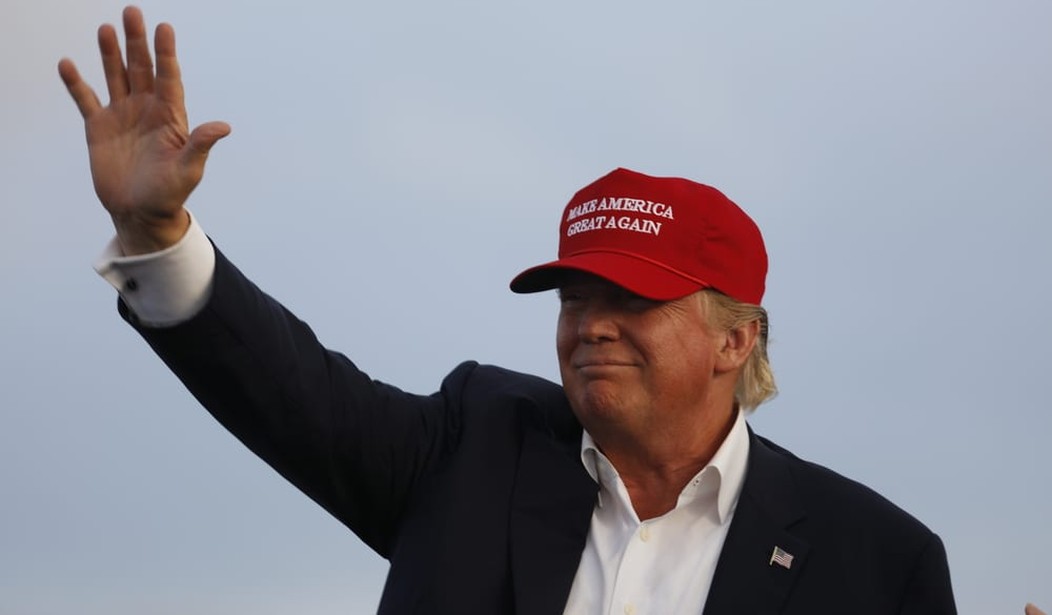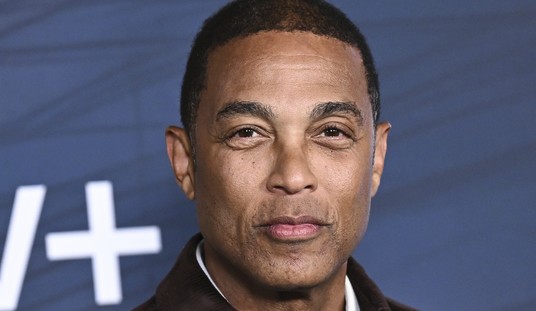A cardinal principle of argumentation is that, in order to win a debate, you need to be able to know your opponent’s side of the issue better than he does. That’s why I urge those on the Right to pay attention to what our successful — no small children or wet-behind-the-ears punditos who never covered a sewer district meeting in Keokuk but who feel perfectly free to pontificate on the state of the nation need apply — counterparts on the Left are saying. And while it’s a commonplace on the whiny Right that the sainted Ronald Reagan bears absolutely no resemblance to the egregious Donald J. Trump, some on the Left see it differently:
Of all the empty boasts that have marked Trump’s successful pursuit of the Republican nomination, his affinity to Reagan may have the most validity and the most pertinence to 2016. To understand how Trump has advanced to where he is now, and why he has been underestimated at almost every step, and why he has a shot at vanquishing Hillary Clinton in November, few road maps are more illuminating than Reagan’s unlikely path to the White House. One is almost tempted to say that Trump has been studying the Reagan playbook — but to do so would be to suggest that he actually might have read a book, another Trumpian claim for which there is scant evidence.
Before the fierce defenders of the Reagan faith collapse into seizures at the bracketing of their hero with the crudest and most vacuous presidential candidate in human memory, let me stipulate that I am not talking about Reagan the president in drawing this parallel, or about Reagan the man. I am talking about Reagan the candidate, the canny politician who, after a dozen years of failed efforts attended by nonstop ridicule, ended up leading the 1980 GOP ticket at the same age Trump is now (69) and who, like his present-day counterpart, was best known to much of the electorate up until then as a B-list show-business personality.
The writer is Frank Rich, whom I’ve known for 35 years, a very smart guy and a sharp, witty writer with whom I hardly ever agree, whether it concerns the musical theater or a presidential campaign. But his analysis here is worth attending:
Remarkably, though, the Reagan model has proved quite adaptable both to Trump and to our different times. Trump’s tenure as an NBC reality-show host is comparable to Reagan’s stint hosting the highly rated but disposable General Electric Theater for CBS in the Ed Sullivan era. Trump’s embarrassing turn as a supporting player in a 1990 Bo Derek movie (Ghosts Can’t Do It) is no more egregious than Reagan’s starring opposite a chimp in Hollywood’s Bedtime for Bonzo of 1951. While Trump has owned tacky, bankrupt casinos in Atlantic City, Reagan was a mere casino serf — the emcee of a flop nightclub revue featuring barbershop harmonizing and soft-shoe dancing at the Frontier Hotel in Las Vegas in 1954. While Trump would be the first president to have been married three times, here, too, he is simply updating his antecedent, who broke a cultural barrier by becoming the first White House occupant to have divorced and remarried. Neither Reagan nor Trump paid any price with the Evangelical right for deviations from the family-values norm; they respectively snared the endorsements of Jerry Falwell and Jerry Falwell Jr….
But Reagan’s and Trump’s opposing styles belie their similarities of substance. Both have marketed the same brand of outrage to the same angry segments of the electorate, faced the same jeering press, attracted some of the same battlefront allies (Roger Stone, Paul Manafort, Phyllis Schlafly), offended the same elites (including two generations of Bushes), outmaneuvered similar political adversaries, and espoused the same conservative populism built broadly on the pillars of jingoistic nationalism, nostalgia, contempt for Washington, and racial resentment. They’ve even endured the same wisecracks about their unnatural coiffures. “Governor Reagan does not dye his hair,” said Gerald Ford at a Gridiron Dinner in 1974. “He is just turning prematurely orange.” Though Reagan’s 1980 campaign slogan (“Let’s Make America Great Again”) is one word longer than Trump’s, that word reflects a contrast in their personalities — the avuncular versus the autocratic — but not in message. Reagan’s apocalyptic theme, “The Empire is in decline,” is interchangeable with Trump’s, even if the Gipper delivered it with a smile.
Read the whole thing. It’s not a flattering piece regarding Reagan — why would it be? But there are, in fact, plenty of similarities, easily remembered by those of us who were not only breathing in 1980, but could actually cast a vote.
Reagan was widely disparaged by the media of the time as a dangerous “cowboy” who was going to bring the world to the brink of nuclear annihilation the day after he stepped into the White House; Carter, while inept and weak, was the safer choice. The now-beloved Gipper was also viewed as a genial idiot and unhinged loon, the far-right former governor of California who rained on the student-revolutionaries’ parades. The press made fun of everything about him, including (as Frank notes) his hair.
Nor was Reagan a consistent conservative. He deviated from party orthodoxy to both the left and the right. He had been by his own account a “near hopeless hemophilic liberal” for much of his adult life, having campaigned for Truman in 1948 and for Helen Gahagan Douglas in her senatorial race against Nixon in California in 1950. He didn’t switch his registration to Republican until he was 51. As California governor, he signed one of America’s strongest gun-control laws and its most liberal abortion law (both in 1967). His vocal opposition helped kill California’s 1978 Briggs Initiative, which would have banned openly gay teachers at public schools. As a 1980 presidential candidate, he flip-flopped to endorse bailouts for both New York City and the Chrysler Corporation. Reagan may be revered now as a free-trade absolutist in contrast to Trump, but in that winning campaign he called for halting the “deluge” of Japanese car imports raining down on Detroit. “If Japan keeps on doing everything that it’s doing, what they’re doing, obviously, there’s going to be what you call protectionism,” he said.
The Republican elites of Reagan’s day were as blindsided by him as their counterparts have been by Trump. Though Reagan came close to toppling the incumbent president at the contested Kansas City convention in 1976, the Ford forces didn’t realize they could lose until the devil was at the door. A “President Ford Committee” campaign statement had maintained that Reagan could “not defeat any candidate the Democrats put up” because his “constituency is much too narrow, even within the Republican party” and because he lacked “the critical national and international experience that President Ford has gained through 25 years of public service.” In Ford’s memoirs, written after he lost the election to Jimmy Carter, he wrote that he hadn’t taken the Reagan threat seriously because he “didn’t take Reagan seriously.” Reagan, he said, had a “penchant for offering simplistic solutions to hideously complex problems” and a stubborn insistence that he was “always right in every argument.” Even so, a Ford-campaign memo had correctly identified one ominous sign during primary season: a rising turnout of Reagan voters who were “not loyal Republicans or Democrats” and were “alienated from both parties because neither takes a sympathetic view toward their issues.” To these voters, the disdain Reagan drew from the GOP elites was a badge of honor. During the primary campaign, Times columnist William Safire reported with astonishment that Kissinger’s speeches championing Ford and attacking Reagan were helping Reagan, not Ford — a precursor of how attacks by Trump’s Establishment adversaries have backfired 40 years later.
Sound familiar? Without uttering a single word of endorsement for Trump (that’s not my job), for months I have been making the case here and in the Sunday New York Post that the light at the end of the tunnel was an oncoming train. And now, here it is, coming right through your living room. Live with it.









Join the conversation as a VIP Member